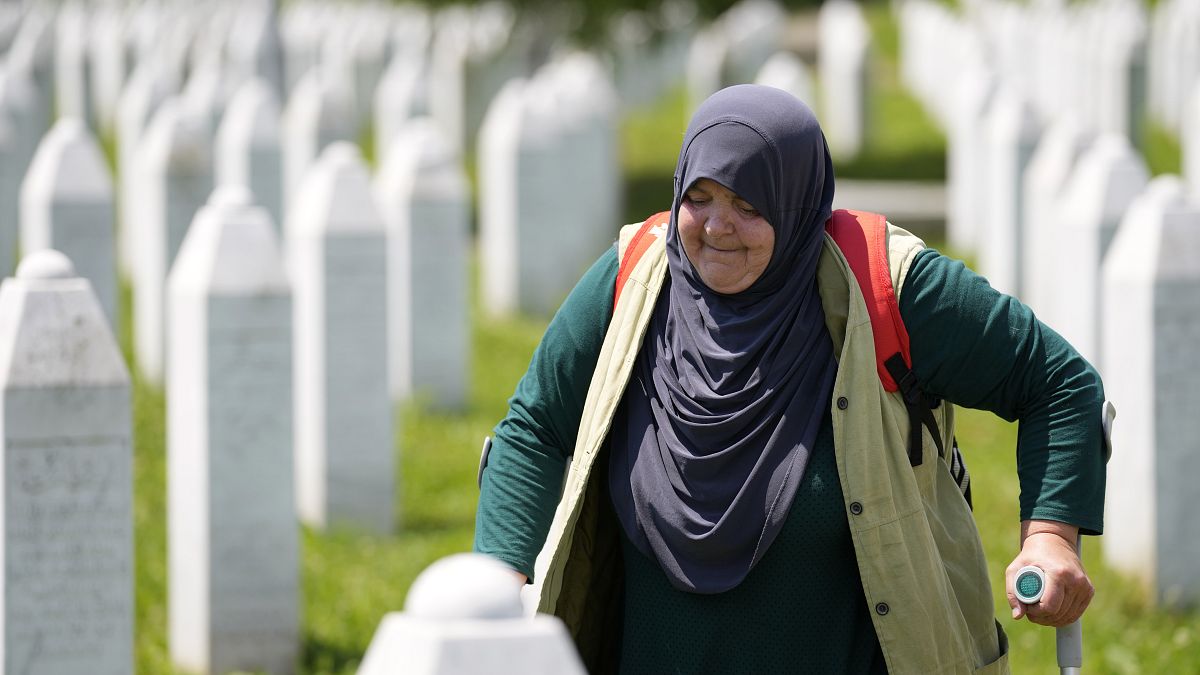They are the latest to be identified in mass graves at the site of Europe's worst massacre since the Second World War.
Coffins containing the remains of 19 Muslim Bosniacs slaughtered in Srebrenica will be reburied on Sunday, the 26th anniversary of their deaths.
They are the latest to be identified in mass graves at the site of Europe's worst massacre since the Second World War.
Their identities were determined through DNA tests.
One of the bodies belongs to the nephew of Rahima Halilovic, who returned to Srebrenica to bury him.
Sobbing, she recounted when she last saw him: "When Srebrenica fell, he (her nephew) tried to flee through the forest with his brother and my husband. They never came back."
"We buried my husband, him, Esnaf. We will bury (my nephew) tomorrow and we still haven't found his brother, Almir."
Over 8,000 Bosnick men and boys were killed over several days after Bosnian Serb forces overran Srebrenica on July 11, 1995, in the waning months of Bosnia's 1992-95 interethnic war.
Srebrenica had been declared a safe zone by the United Nations and Dutch troops were deployed there to enforce it.
But they were outnumbered and outgunned, meaning they could only watch as Bosnian Serb soldiers rounded up the town's population and took the men and boys away for execution.
Thousands of people from all over Bosnia and Europe, including massacre survivors, are expected to attend the funeral in Srebrenica on Sunday.
Many wives, mothers, sisters and daughters of those killed in Srebrenica have dedicated their lives to fighting for the truth about what happened to their men.
Yet, in over a quarter-century, only a handful have publicly spoken of the sexual abuse they suffered during the fall of Srebrenica.
One such victim is Devla Ajsic, who described how she was sexually assaulted and tortured for three days before departing Srebrenica in one of the last buses packed with refugees.
"The things they did to me, they tied me to a desk, my neck and my chest were blue from bruises, I was sprawled naked on that table," she recounted, sobbing.
Ajsic said the Serb soldiers drugged her, clouding her mind, but even so she was acutely aware she was not the only woman kept bound and subject to horrific abuse in a hangar of the then-UN compound.
She rarely visits Srebrenica, a town today shared between survivors of the massacre and those still who deny it ever happened.
The Srebrenica massacre is the only episode of the Bosnian war to be defined as a genocide, including by two UN courts.
Although the remains of over 6,600 victims have been exhumed and reburied here, there are well over a thousand men and boys still to find.
